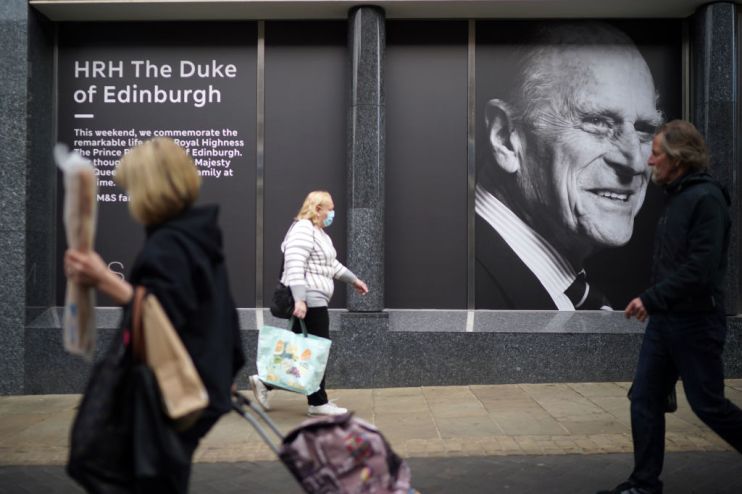Prince Philip’s global outlook has important lessons for forward-thinking businesses

There has been a huge amount written and said about the life of Prince Philip, the Duke of Edinburgh. There are also crucial lessons businesses can glean from his work.
For a start, the Duke’s life of 99 years was exceptional in its length. Any business would like to be around for that long. There are a small number of family businesses founded in 1921, the year of the Duke’s birth, which are still going strong, namely Evans Cycles, Tate & Lyle and Taylor Woodrow (forerunner to Taylor Wimpey). But these are exceptions rather than the norm. Amongst larger companies, the average lifespan of an S&P company has dropped from 60 years in the 1950s to about ten years today before the company is bought or liquidated. There is value in longevity. The Duke’s ability to “keep calm and carry on” over the course of ten decades is an instructive template for companies.
Our experience working within the Royal Household gave us valuable insight we now endeavour to impart to the range of entrepreneurs and family offices we work with. While the Duke of Edinburgh’s legacy will be one of service to the Queen, part of the enduring footprint of his life will be his well-rounded and forward thinking outlook which businesses would do well to model themselves on.
First, Prince Philip put his international experience and perspective at the heart of his work as a Royal. Our monarchy is as global as they come, with the Sovereign serving as Head of State of 16 countries and is head of the 54 nation Commonwealth. The Duke had exposure to lots of different countries, first through his naval career, and then through his role accompanying the Queen on State Visits. Together they visited more than 120 countries, (the Duke was made a Freeman of many cities from Bridgetown and Dar es Salaam to Los Angeles and Melbourne). Any business with ambition to go global must spend time understanding the cultures and traditions of a country. There must be a deep respect for where people come from and the lives they lead, whether that applies to staff, suppliers, customers or clients.
The second lesson of the Duke’s life is to be youth-orientated. He set up his famous Duke of Edinburgh Awards scheme in 1956 to develop life skills, awareness and adventure. In its 65 years, it has reached over 3.1 million young people aged 14 to 24 in the UK. And the international programme has grown to reach young people in more than 130 countries. The principle behind the Awards of inspiring young people through investing in them would be well heeded by business. The commercial sector knows that they are the base for current and future employees and consumers. This should be translated into practical initiatives creating opportunities for pupils at school and scaling up apprenticeship programmes.
The Duke was also an outspoken advocate of conservation issues and environmental responsibility. He pioneered green issues for the Royal Family, becoming President of Fields in Trust in 1948 and the first President of the World Wildlife Fund UK in 1961. The Royals’ leadership on environmental issues has influenced the business community. Now every respectable business is aware of its carbon footprint and is working towards net zero emissions.
The fourth lesson can be found in the Duke’s appreciation of science and engineering. He presented the prestigious MacRobert Award for engineering, almost every year since it began in 1969. He also influenced the formation of the Royal Academy of Engineering in 1976. The Duke was an important advocate for a sector that is set to become a centrepiece of the UK economy. The Prime Minister has talked about making the country a “science superpower”. The Duke was ahead of his time in his commitment to science development and finding a way to nurture the best minds in Britain.
Finally, the Duke’s work supporting organisations, through patronage of over 800 charities, and carrying our public engagements all over the UK and Commonwealth, showed a great example of tenacity. When he retired from public life in August 2017, the Duke had carried out 22,219 solo engagements. He showed that achievement invariably comes with hard work and over the long haul, which is usually the case in business.
Unsurprisingly for a man with a personal library of 13,000 books, Prince Philip liked to read and had a curious mind. His free thinking and contrarian disposition would have made him a very well-qualified NED around the boardroom table. Even though his destiny lay elsewhere, the Duke’s long and eventful life carries important lessons for business.